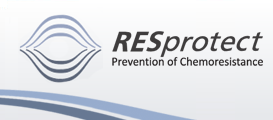| A warts-and-all view of Avantogen's pancreatic |

|

|

|
Page 1 of 2
If there's one thing guaranteed to excite attention in the biotech investment field, it's the result of a clinical trial. This analyst could talk until he was blue in the face about in vitro data, findings from animal model work, and even anecdotal evidence that a therapeutic approach works in people. However until a company is ready to report the outcome of a properly designed clinical study, only the aficionados will really be listening, and they generally aren't people who buy much biotech stock. That's why a company called Avantogen, ASX Code ACU, is of some interest to this analyst at the moment. If the name Avantogen doesn't ring a bell, you may know it by its pre-May 2005 name of Australian Cancer Technology, which also had the ACU ticker. When this analyst first looked at AustCancer around three years ago it was a more or less obscure developer of peptide-based cancer vaccines. Things began to change for the company in 2003 when Paul Hopper, a former private hospital executive turned technology entrepreneur, introduced a second project and helped recapitalise the company before being named CEO in August 2003, at the height of that year's biotech bull market. Hopper had no background in biotech but he took seriously the task of going up the learning curve, and was able to do so fairly swiftly. He was also a good dealmaker, and over the next year and a half managed to bring into AustCancer a number of projects which both spread the project risk and moved the company closer to a point where marketable products would be in sight. For a while in 2003 and 2004 the market was pretty impressed. At its high point in May 2004 AustCancer stock was up fivefold on its level of twelve months before. One of the projects that Hopper and his colleagues got hold of in 2004, and the chief reason to be looking at Avantogen right now, involves a small molecule drug that has been given the codename RP101. The compound has been showing promise as the next big thing in treating pancreatic cancer, and a Phase I/IIa clinical trial is currently being completed, with results expected in the next few months. Sure, cancer of the pancreas isn't all that common in the Western world - there are only around 30,000 cases a year in the US - but uncommon medical conditions are often the most lucrative to target. A drug company can and often does charge the earth for drugs specific to a rare disease, and in the case of pancreatic cancer Avantogen has previously speculated that the U.S. market for RP101 is worth perhaps US$200m a year. Moreover if there's nothing out there that really works for the patients - and that seems to be the case with pancreatic cancer - the regulatory folks will generally accelerate approval of the drug. And don't forget the tax breaks an other benefits out there for people who develop so-called 'Orphan Drugs' where the patient population is less that 200,000. All of this suggests that the pay-off from a successful clinical trial of RP101 could be both swift and lucrative from the perspective of a small company like Avantogen. Given RP101's performance to date, we think it's reasonable to expect the data from the trial to be favourable. But to understand why it's necessary to go back and look at all that early stage science. So bear with us for a moment while we explain why Avantogen thinks it is on to something good... |
||||



